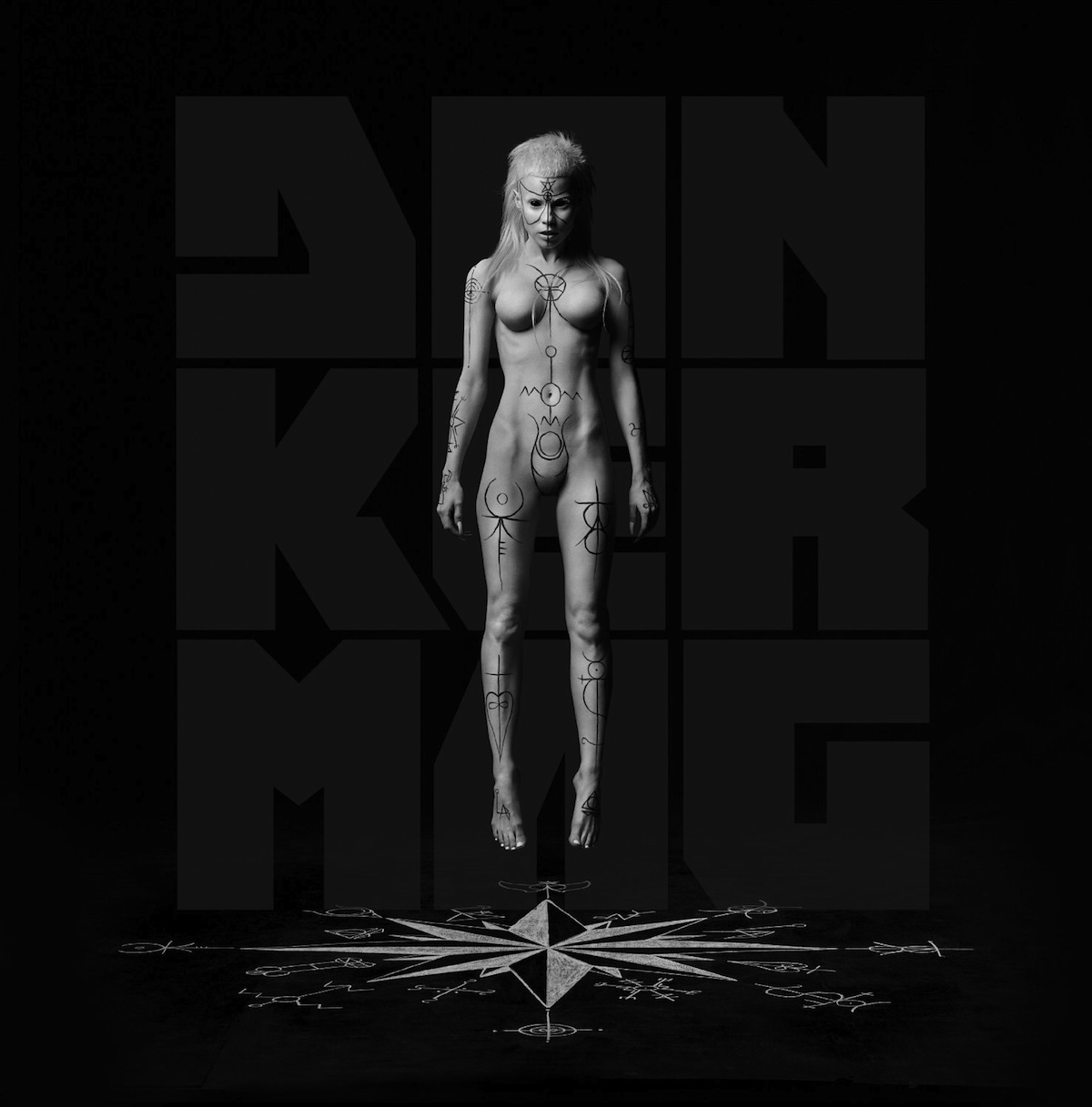
This post is in partnership with Consequence of Sound, an online music publication devoted to the ever growing and always thriving worldwide music scene.
Die Antwoord is like no other band on the planet, having earned their kitschy, South African Zef-side superlative through a combination of badboy raunch, à la frontman Ninja (Watkin Jones), intriguing high-pitched asides from the spirited Yolandi Visser, and a gutterpunk club-kid vibe that pulses off producer DJ Hi-Tek. Past singles, such as the catchy “Enter the Ninja” as well as the Diplo-produced “Evil Boy,” worked their way onto a number of playlists and club rotations, helping the band secure a frenzied live show prestige as a must-see act at any music festival. Die Antwoord’s bombastic concerts and larger than life stage personas are not to be missed. However, this wild energy and devil may care attitude yield weaker dividends after being bottled and pasteurized in a studio that appears staffed by a cadre of rejected Saturday Night Live sketch writers.
The album opens with “Don’t Fuk Me,” a silly set piece wherein Ninja — channeling his least creative Jerky Boys cassette tape — leaves a threatening message on a mate’s voicemail box. It’s a one-sided conversation that is more sophomoric than scary. It is also an immediately disappointing placeholder that serves as an apéritif for the rest of Donker Mag. After all, the craziest gangster rappers — whether true OGs, tongue-in-cheek, Zef side, or even Juggalo — at least have the decency and courage to issue threats face to face. Instead, “Don’t Fuk Me” sets the tone that there is no real danger here.
Ninja shares in “Zars” that South Africa is a diverse patchwork of land with 11 official languages. The track — another sketch of sorts — is a brief history of tongues and accents. It also allows Ninja a moment to share his chameleon-like abilities to fade in and out of dialects depending on his audience. Unlike the other spoken word soliloquies on Donker Mag, this one feels genuine and insightful. The concept of Zef and its rap-rave fiesta sensibilities are poised as a means of pulling the nation under the flag of dance, wilding out, and having a good time regardless of one’s background. That’s why it’s refreshing to hear Ninja expand on the group’s manifesto of unity. However, the fact that “Zars” immediately segways into “Raging Zef Boner” means the nearly ripe fruit gets plucked from the vine early and hurled back into the compost heap.
“Raging Zef Boner” meanders along like the more playful Slim Shady tracks dropped in the early aughts. Lyrically, it sprinkles references to Lady Gaga, Instagram, boob pics, dick pics, catfishing and psychedelics. Musically, it plods along with a clumsiness that’s usually reserved for the villains in animated Disney films. Like hyenas plotting kings and succession, or Gaston boasting about his incredibly thick neck, there’s a disconnected cartoon goofiness to it all. Most of this is meant in jest, of course, but it becomes increasingly difficult for the listener to draw distinctions between moments that earn genuine satirical laughs and other sections best met with a groan. “Raging Zef Boner” wraps up and finds itself sandwiched again between yet another sketch — “Pompie” — which boils down to a forgettable, minute-long interlude of female laughter. It’s too bad the audience isn’t let in on the joke, though. These sketches continue to flare up in “I Dont Dwank”, “Do Not Fuk Wif Da Kid”, and “Girl I Want 2 Eat U” among others.
Bits have long been a part of hip-hop records. Arguably, the funniest and most sinister were found on Enter the Wu-Tang (36 Chambers), where Method Man’s threats of forced gluttonous harm — “[I’ll] keep feeding you, and feeding you, and feeding you” — still deliver a chuckle today. The strength of that sketch is also bolstered by an immediate cut to the rugged limelight introduction of “Method Man.” But these stoppages on Donker Mag, like too many timeouts in a basketball game, prevent the 16-track album from ever securing a sustainable rhythm. They also teach the importance of bringing an unbiased set of ears into the studio.
“Pitbull Terrier” is still a standout song on Donker Mag that finds Die Antwoord returning to form. The one-two back-and-forth between Ninja and Visser hearkens to the original formula of playful exchanges and boastfulness that made the group lovable in the first place. It’s an undeniably catchy tune made all the more interesting by a unique Zef styled cadence, as well as the group’s obsession with animals. “Cookie Thumper” is another highlight. The tune allows Visser to demonstrate that her flow range as a talented hip-hop performer extends beyond mere chorus duties. There’s an eerie, haunted little girl quality to it, as if Linda Blair was vomiting a sick freestyle rather than split pea soup onto her exorcist.
Die Antwoord remains an act to catch live. And that’s no put down. Their stage show pries out a gritty, filthy edge from any commonplace spectator that few bands can hope to capture. As far as Donker Mag is concerned, though, just hold out, and you’ll be sure to catch the best parts at the 5 p.m. slot of your next local music festival.
Essential Tracks: “Pitbull Terrier”, “Cookie Thumper”
More from Consequence of Sound: The 13 Scariest Rock Songs
More from Consequence of Sound: Still want to book your favorite band? Here’s how much it’ll actually cost
More Must-Reads from TIME
- Cybersecurity Experts Are Sounding the Alarm on DOGE
- Meet the 2025 Women of the Year
- The Harsh Truth About Disability Inclusion
- Why Do More Young Adults Have Cancer?
- Colman Domingo Leads With Radical Love
- How to Get Better at Doing Things Alone
- Michelle Zauner Stares Down the Darkness
Contact us at letters@time.com